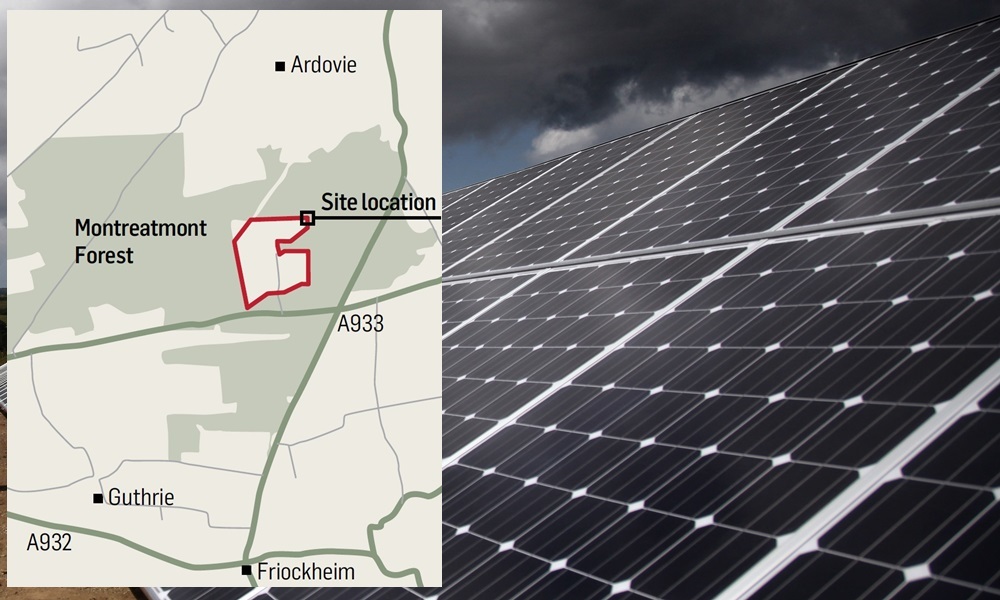The former home of Angus wireless operators who helped to win the Enigma code battle against the Nazis may be surrounded by a solar energy park.
Hidden in a forest clearing between Forfar and Montrose, the Montreathmont Moor listening station was crucial in the intelligence war, eavesdropping daily on Hitler’s bunker from around 1943.
Manned by a crack unit of the Royal Corps of Signals, it played a significant role in the success of British military intelligence in the Second World War, as it was one of the major sub-stations for the Bletchley Park code-breaking centre that cracked the highly complex Enigma.
Now, a solar power developer plans to pack the forest clearing around the site with 88 hectares of ground-mounted panels.
Developer Lightsource Renewable Energy Ltd is organising a public display in Guthrie Hall, expected to take place on either June 16 or 18 between 4pm and 8pm, and copies of the notice have been served to Aberlemno and Friockheim community councils.
And Angus councillors will be asked to consider a proposal of application notice at a meeting in Forfar on Tuesday.
Members of the development standards committee will be invited to identify any issues they feel should be addressed with the full application.
Vivien Smith, head of planning and place, notes in a report to the committee: “The site has been historically associated with agricultural use and wartime listening operations.
“It has been indicated that the proposed development would have a generation capacity of 42MW.”
Simply known by its team of eavesdroppers as PO Box 25, the post was opened in March 1943.
Under the auspices of the Radio Security Service and sister station to Hanslope Park, it housed more than 100 personnel engaged in special enemy agent and intelligence interception work .
It was closed for interception work in late 1945, after the end of hostilities, but continued to be used for special communications for MI6 and diplomatic embassies.
“It was such a hush-hush unit that, even today, few people know of its existence,” said David White, one of Bletchley Park’s historians.
“It was unique so far as Scotland was concerned and was very important in the Enigma set-up.”
